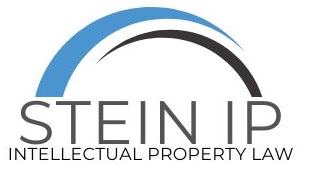- HOME
- > Blog Main Page
- > News
- > Brexit Is Finally Happening
Brexit Is Finally Happening

By Skyelar Reel
With the mutual approval of the Withdrawal Agreement Act 2020, the United Kingdom (“UK”) marked its official leave from the European Union (“EU”) on January 31, 2020. Since then, people have wondered what the UK’s next steps will be and specifically, what will this mean for intellectual property.
The Withdrawal Agreement Act 2020 includes an implementation period in which the UK will be able to properly transition to a complete state of independence. Moving forward, the UK will now determine its own policies in regards to topics such as international trade; thus, begin to organize negotiations for its separate free trade deals.
The current “EU trade marks and registered Community designs” will continue to be active within the UK during the implementation period (Nurton #1). After the implementation period ends, these trade marks and designs will be automatically converted into UK rights.
The European Union Intellectual Property Office acknowledged that nothing will significantly change for the UK until the end of the transition period. The United Kingdom Intellectual Property Office also published a guidance that confirmed its conversion of EU trade marks and registered Community designs to comparable UK rights that will be effective as of January 1, 2021.
On the other hand, for patents, the European Patent Organization is broken up into two parts in which one, the European Patent Office, acts as an executive body, while the other, the Administrative Council, acts as a supervisory and legislative body. The European Patent Organization is separate from the EU so patents are not affected by Brexit. Thus, patent attorneys in the UK will continue to do the same as they did before the European Patent Office.
While it seems some provisions will not change, patent law is not completely untouched by Brexit. The Supplementary Protection Certificates, an intellectual property right that serves as an extension to a patent right, for pharmaceutical and plant protection products, are currently granted as national rights due to the EU’s interest of public health and innovation, but in given time, the law may diverge (Anonymous). The EU Biotech Directive and certain provisions of EU competition law may impact patents as well.
Currently, IP Minister Chris Skidmore has acknowledged that the UK has no plans to implement the Digital Single Market Copyright Directive. This Directive “aimed to promote cross-border access to content, the use of copyrighted materials in education, research and cultural heritage and a better functioning copyright marketplace” (Nurton #2). It “addresses the liability of online content-sharing websites” which benefits tech companies and activists but hurts rights owners (Nurton #1). However, Skidmore has not completely ruled out the idea of the UK potentially enacting a similar directive in the future.
References:
(#1) Nurton, James. “Brexit Is Finally Happening: Here’s What to Expect for IP.” IPWatchdog.com | Patents & Patent Law, 31 Jan. 2020, www.ipwatchdog.com/2020/01/31/brexit-finally-happening-heres-expect/id=118401/.
(#2) Nurton, James. “The Top Five European IP Developments of 2019-and Five to Watch for 2020.” IPWatchdog.com | Patents & Patent Law, 18 Dec. 2019, www.ipwatchdog.com/2019/12/30/top-five-european-ip-developments-2019-five-watch-2020/id=117141/.
Anonymous. “Supplementary Protection Certificates for Pharmaceutical and Plant Protection Products.” Internal Market, Industry, Entrepreneurship and SMEs – European Commission, 28 June 2017, ec.europa.eu/growth/industry/policy/intellectual-property/patents/supplementary-protection-certificates_en.

TAGS:
RECENT POSTS
